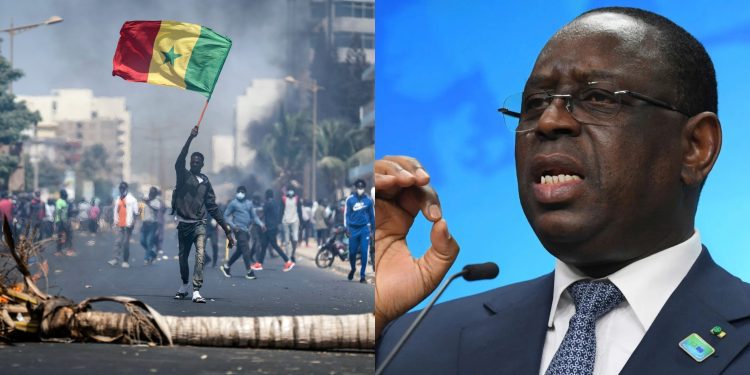The Economic Community of West African States (ECOWAS), has initiated a diplomatic mission to engage with Senegalese authorities and stakeholders. This is in response to the escalating political crisis in Senegal.
Sidie Mohamed Tunis, the Speaker of the ECOWAS Parliament, will be in charge of the mission, which will take place from February 12 to 14.
In an official statement, the ECOWAS parliamentary office outlined the purpose of the mission, stating, “During the Feb. 12–14 mission, the speaker of the ECOWAS parliament, Sidie Mohamed Tunis, and members of the assembly will meet Senegalese authorities, politicians, and representatives of civil society.”
Amid unrest
This diplomatic intervention comes in the wake of heightened tensions in Senegal, marked by protests and clashes. The unrest resulted in the deaths of three individuals. The most recent casualty was a 19-year-old who lost his life following clashes in Ziguinchor.
The deceased teenager, according to a hospital source, “took a projectile to the head and died of his injuries in intensive care” on Saturday evening.
Abdou Sane, coordinator of the opposition party Pastef in Ziguinchor, reported, “There were several seriously wounded people during the protests, and one died. He was hit in the head by a bullet.”
While most Senegalese cities remained relatively calm on Saturday, Ziguinchor, a stronghold of jailed opposition figurehead Ousmane Sonko, witnessed ongoing spontaneous demonstrations.
Change of electoral calendar
A decision by President Macky Sall to postpone the presidential election until December 2024 has triggered widespread unrest, pushing Senegal into its most severe crisis since gaining independence from France in 1960.
President Macky Sall defended his decision to postpone the election, attributing it to a dispute between parliament and the Constitutional Council over potential candidates barred from running. He expressed a commitment to initiating a process of “appeasement and reconciliation” and reiterated his pledge not to seek a third term, addressing international concerns.
In response to the crisis, Senegal’s parliament, on Monday last week, backed Sall’s decision and voted to extend his term until his successor assumes office, a transition unlikely to occur before early 2025.
The violence during the protests has raised concerns, especially in a country that has long been regarded as a stable and democratic beacon in West Africa.
Sall’s second term was originally set to conclude on April 2, but the parliament decided that the next election would be held in December 2024. The ECOWAS diplomatic mission is anticipated to play a crucial role in facilitating dialogue and finding a peaceful resolution to the political turmoil gripping Senegal.



